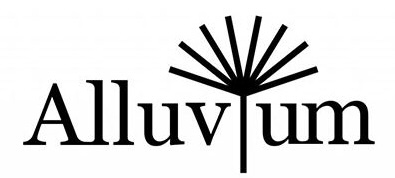Michael J. Collins
As I inform my students exhaustedly year on year, cultural criticism is concerned with asking crucial questions about the world that we inherit from our ancestors. So why then have critics been reluctant to ask the most crucial question of all? Why do we make art or write literature? After all, in an era in which postmodern theories of social construction have all but annihilated most naïve artistic and critical claims to originality or universal meaning, why do we continue to surround ourselves with artistic and literary expression and devote so many of our resources of time and money to acquiring, decoding or constructing it? Whilst scholars remain keen to find value in an artist’s selection of certain phrases, pigments or perspectives in the construction of a single discrete work of art, or to muse upon how that work fits into the larger matrix of a culture, they seldom wonder why anyone bothered in the first place.
Darwin: a heavyweight for literary study? [Image by Christopher Dombres under a CC-BY license]
It is the question of why we make art that motivates a newly emergent, ebullient, and controversial area of scholarship that has its roots in the dazzling well-funded and documentary-friendly subjects of evolutionary psychology and linguistics. Usually referred to either as human nature criticism, literary Darwinism or adaptationist aesthetics, this diverse group are unified by their clear sense of frustration with what they see as a consensus within social constructionist, poststructuralist or postmodern schools of theory that the meaning of all art is socially and politically contingent and human beings have no essential or universal characteristics. For these Darwinian literary critics the collection of schools that comprise postmodernism reek of a troubling presentism that makes them unable, or unwilling, to look to the origins of human art in a search for meaning. In fact, in the wake of deconstruction to even speak of origins has become something of an academic faux pas that would lead to an inevitable volley of difficult questions: Whose origins? What do you mean by origins? etc. Even that most scientifically attuned of critics, Gilles Deleuze, described human culture and art as rhizomatic entities without start or finish, something more like a mushroom than a man. So, what is human about human art?
Most literary Darwinists have begun to attempt to explain art in the terms of evolution without falling back on the dismissive, unthinking perspective that it is a purely self-serving act designed to secure resources for the individual. In fact, the question of why we make art becomes doubly significant when one takes the assumptions of Darwinian theory seriously. From an evolutionary perspective the existence of art is the greatest puzzle of human life, perhaps only equalled by the concept of altruism (with which it shares much intellectually).
Can we explain art in terms of evolution? [Image by e_monk under a CC-BY-NC-SA license]
As Jonathan Gottschall and David Sloan Wilson state in their collection The Literary Animal: Evolution and the Nature of Narrative (2005):
The puzzle is roughly this: in ancestral environments characterized by intense competition for survival and reproduction, how could the evolutionary process “allow” any animal to spend (waste?) so much time producing, elaborating and consuming art – time that could be spent pursuing mates and another quarry? (145)
The suggestions offered by this new school as to why art exists are numerous, and some are more compelling than others. For example, the evolutionary psychologist and poster-boy for “academic impact” Steven Pinker argues in The Blank Slate (2002) that art is a by-product of evolutionary development that appeals to an innate sensitivity to colour, sound and shape that first evolved to help us hunt or avoid predators. For Pinker, art is an essentially useless substitution for real experience that is aimed purely at the pleasure centres of our brain. Under the conditions of modernity (the emergence of the concept of free time, professionalised art practices and the possibility of technological reproduction) the creation and consumption of art has expanded because we are hard wired to find pleasure in it. Pinker follows a dominant line in psychology in arguing that we are all pleasure seekers addicted to the fictive excitements of art, in much the same way as some individuals are to the artificial sensations generated by drugs and alcohol.
Indeed, there is a generic appeal within literary Darwinism towards the more piquant, even transgressive, areas of popular culture. As Catherine Salmon demonstrates in her excellent essay “Crossing the Abyss: Erotica and the Intersection of Evolutionary Psychology and Literary Studies” (Gottschall and Wilson) combining an attention to popular culture with a Pinkerean sense of art as an evolutionary by-product can do much to explain the specifically gendered appeals of that most functionally useless but ubiquitous form of art: pornography.
Can we move beyond poststructuralist literary criticism? [Image by Thierry Ehrmann under a CC-BY license]
This should not lead us to believe that literary Darwinism is singularly interested in contemporary popular culture. In fact, Joseph Carroll’s collection of essays Literary Darwinism: Evolution, Human Nature, and Literature (2004) demonstrates the links between Victorian literary realism and naturalism and contemporary evolutionary psychology. This is perhaps unsurprising; since the naturalist movement is arguably the last time literature saw what E.O. Wilson has referred to as a true “consilience” between science and art.[1] Undergirded by nineteenth-century conceptions of “progress” and institutionally supported by the essential interdisciplinary of nineteenth-century periodicals, artists and scientists could at least imagine that they were pulling in the same direction. Indeed, it is worth noting that in writing about Darwin directly these critics find their strongest voice.[2] In this area, literary Darwinism seeks to make valuable contributions to debates on the future direction of cultural studies. By resisting the fracture of humanities into specialist areas, not unlike Habermas’s diagnosis of postmodernism’s tendency to favour the cult of the expert,[3] literary Darwinism might help us develop a new basis for interdisciplinary research, even a new humanist orientation for the post-genomic age.
Often though, it seems that it is Steven Pinker and not Charles Darwin who looms largest over the movement. Having recently witnessed the spectacular power of sound and fury signifying nothing in the guise of Michael Bay’s Transformers films, I am willing to believe that Pinker’s theory of the narcotic effects of art hold some truth. At the same time, I feel that this sells art short, ignoring the positive political, social and emotional effects that only beauty and intellectual excitement can bring. This is why in my survey of recent works of literary Darwinism, I have found that the most compelling and valuable methodological approach comes in Brian Boyd’s recent work On the Origin of Stories: Evolution, Cognition and Fiction (2009). In this large book the author expounds a theory that art is really about the possibility of “shared attention”. In this sense, all art is both politically directed towards certain aims and an innate consequence of human development. For Boyd, humans exhibit a special aptitude to “fine-tune the emotional impact of shared attention on cooperation… draw on explicit shared models, exemplars and admonitions, on myth, stories and ritual enactments” (107). Rather than seeking only to preserve our own genes, we are actually fully aware of ourselves as part of a society that to exist must function collectively. In fact, artistic shared attention is so valuable to us that it aids us in competing against societies that are more expressly utilitarian in orientation. Boyd’s approach reinserts Darwin into cultural anthropology and literary criticism by suggesting that art generates action. Beauty, for Boyd, is productive.
Millais’ nuns: rethinking realism in the age of evolutionary psychology [Image by David Flan under a CC-BY license]
I am aware that literary Darwinian approaches are reductive (or rather, I should say, synthetic), but the possibility of a future “consilience” between art and science has a distinct appeal in an era often characterised by its resistance to utopian projects. As such, I understand the urge behind literary Darwinism, even if I am exasperated by its constant claims to persecution at the hands of postmodern humanities scholarship, and have concerns about some of its conclusions. However, I will take this first issue of Alluvium to assert that as critics we must continue to pay attention to science if we are not to be left in the wake of its advances. I will follow Brian Boyd in claiming that the first goal is building a base for “shared attention” between science and art. At least, in this, literary Darwinism is doing something right.
CITATION: Michael J. Collins, “On Literary Darwinism,” Alluvium, Vol. 1, No. 1 (2012): n. pag. Web. 1 June 2012, http://dx.doi.org/10.7766/alluvium.v1.1.03.
[author] [author_image timthumb=’on’] http://www.alluvium-journal.org/wp-content/uploads/2011/12/Michael-James-Collins.jpg[/author_image] [author_info]Dr Michael J. Collins is Leverhulme Early Career Fellow at The University of Nottingham. He is a regular reviewer for the Year’s Work in English Studies and serves on the Executive Committee of The British Association for American Studies. [/author_info] [/author]
Works Cited:
Boyd, Brian. On the Origin of Stories: Evolution, Cognition, and Fiction (London: Harvard University Press, 2009).
Carroll, Joseph. Literary Darwinism: Evolution, Human Nature, and Literature (Oxford: Routledge, 2004).
Gottschall, Jonathan and David Sloan Wilson eds. The Literary Animal: Evolution and the Nature of Narrative (Evanston, Illinois: Northwestern University Press, 2005).
Lyotard, Jean-François. The Postmodern Condition trans. Geoff Bennington and Brian Massumi (Manchester: Manchester University Press, 2005).
Pinker, Steven. The Blank Slate: The Modern Denial of Human Nature (New York: Viking Press, 2002).
Wilson, E. O. Consilience: The Unity of Knowledge (London: Vintage, 1999).
Notes:
[1] E. O. Wilson defines this in Consilience: The Unity of Knowledge as “a jumping together of knowledge by the linking of facts and fact-based theory across disciplines to create a common groundwork of explanation” (p. 8).
[2] I would refer readers to Ian McEwan’s essay in The Literary Animal, “Literature, Science and Human Nature” and Joseph Carroll’s review essay “The Origin of Charles Darwin” in Literary Darwinism for examples of this.
[3] Lyotard writes of Habermas in the Appendix to The Postmodern Condition: A Report on Knowledge (“Answering the Question: What is Postmodernism”), that “Jurgen Habermas… thinks that if modernity has failed, it is in allowing the totality of life to be splintered into independent specialties which are left to the narrow competence of experts” (p. 72).
Please feel free to comment.





